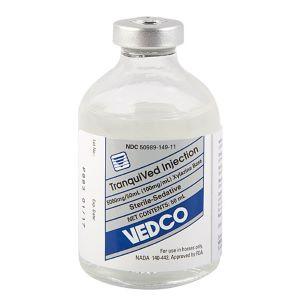A bipartisan pair of senators has filed a bill to require State Department reporting on xylazine, Colombia's president nudges rightist narco-paramilitaries toward peace negotiations, and more.

Cruz, Kaine File STOP TRANQ Act. Sens. Ted Cruz (R-TX) and Tim Kaine (D-VA) have filed the Strengthening Tracking Of Poisonous Tranq Requiring Analyzed National Quantification Act, otherwise known as the STOP TRANQ Act.
The acronymic title notwithstanding, all the bill does is require the State Department to include reporting on xylazine, or "tranq," in its annual International Narcotics Control Strategy Report (INCSR), a country-by-country report that tracks efforts to counter all aspects of the international drug trade. Currently, the report tracks fentanyl and other well-known illicit drugs like cocaine and heroin. It also covers the illicit trafficking of more common pharmaceuticals with abuse risk, such as pseudoepinephrine (Sudafed).
Tranq is a powerful sedative that is increasingly used as an additive to fentanyl. The effects of tranq can be devastating, causing "necrotic" skin alterations and resulting in over 3,000 overdose deaths in 2021. Because xylazine is not an opioid, Narcan is not effective in reversing its effects—making fentanyl-mixed xylazine even more dangerous. The White House designated fentanyl-mixed xylazine as an "emerging threat" early last year and released a National Response Plan in an attempt to address the growing problem.
Virginia Governor Vetoes Bill to Let Prosecutors Charge Trace Drug Possession as a Misdemeanor. Gov. Glenn Youngkin (R) has been busy in recent days vetoing a slew of criminal justice reform measures passed by the Democratic legislature. Among them is House Bill 455, sponsored by Del. Katrina Callsen (D-Albemarle), which would have allowed prosecutors to downgrade the state's felony drug possession charge to a misdemeanor is the amount of drugs in question is just residue (powder stuck to the inside of an empty baggie, for example).
Lawmakers had already amended the bill to remove fentanyl, which can be fatal in extremely small amounts, but that wasn't good enough for Youngkin, who sounds wedded to a harsh prohibitionist impulse.
In his veto statement, Youngkin justified the veto by saying that "reducing charges for possession of controlled substances undermines the seriousness of drug offenses."
International
British Government Adds Nitazenes to Banned Drugs List. Following the recommendation of its Advisory Council on the Misuse of Drugs (ACMD), the British Home Office announced Wednesday that it has designated 15 synthetic opioids, including 14 nitazenes to its list of banned Class A drugs. Other Class A drugs include heroin, cocaine, methamphetamine, MDMA, and magic mushrooms.
The Home Office said it was scheduling the drugs strictly "to prevent drug related deaths in the UK." It also said the move was evidence of its "priority to engage with vulnerable people at risk of being sold these lethal drugs and divert them towards treatment."
The Home Office added that it is moving toward a generic definition of the drugs to make it easier to schedule new versions of them coming down the road. Drug laws, it said, "will be "future proofed by introducing a generic definition of nitazenes, to capture any new drugs that emerge in future."
Nitazenes were first synthesized in the 1950s, but the synthetic opioids were so potent they were never marketed as medicines. They can range from tens to hundreds of times more potent that morphine and have begun to show up in the drug supply on both sides of the Atlantic in recent years.
Colombia, Gulf Clan Tiptoe Toward Talks. The rightwing narco-paramilitary group the Gulf Clan (Clan del Golfo) has responded positively to President Gustavo Petro's call for negotiations as part of his "total peace" policy. That policy attempts to bring to an end decades of civil war and violence that have been fueled by cocaine prohibition and the lucrative profits it brings.
Petro had urged the group to get out of drug trafficking extortion, and the smuggling of immigrants, and challenged it to come to the negotiating table or face armed confrontation, saying: "If you don't dare, we will fight you and destroy you."
The Gulf Clan was quick to respond, saying: "We are ready for political negotiations that allow for the social transformation we all desire," according to local media reports.
Petro's call came after a February 17 attack by Clan gunmen on soldiers in Antoquia, leaving four soldiers dead.
The Gulf Clan is estimated to have between 6,000 and 9,000 armed fighters.
This work by StoptheDrugWar.org is licensed under Creative Commons Attribution-ShareAlike 4.0 International
Add new comment